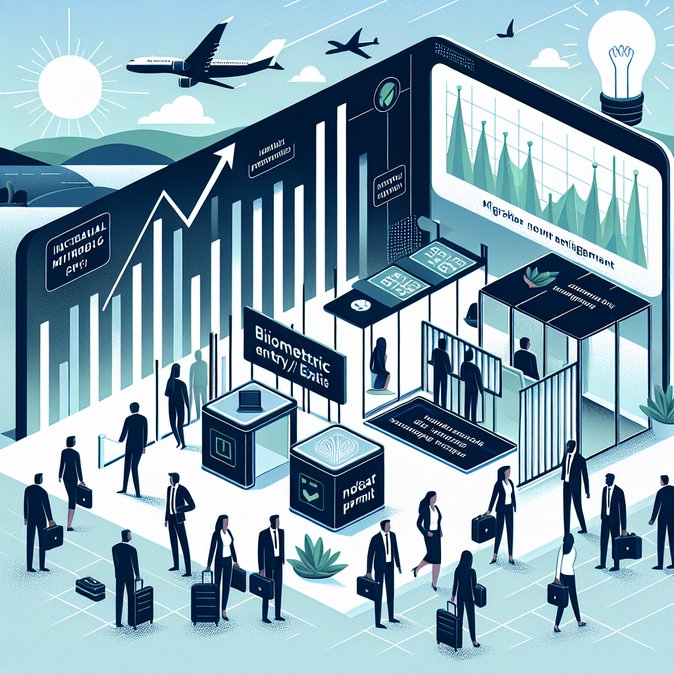
On 7 November 2025 the NGO France terre d’asile published a 20-page briefing note quantifying the fiscal impact of a more open migration policy. Drawing on Social Security data, labour-market modelling by the OFCE and recent INSEE demographic projections, the association calculates that five pragmatic measures—faster work-permit issuance, broadening the 2024 ‘métiers en tension’ one-year residence card, scaling up reception centres, recognising foreign qualifications more quickly and shortening asylum-seeker waiting times—would add €5.6 billion in tax and social-contribution revenue by 2030. After deducting an estimated €2.3 billion in extra programme costs (housing, language training and administrative staff), the net benefit for the State budget would reach €3.3 billion a year as early as 2028.
The report argues that today’s restrictive approach is economically counter-productive: 42 % of asylum-seekers already work informally within a year, while employers in construction, care and hospitality report 320 000 unfilled vacancies. Delays of up to 18 months before a first work authorisation mean lost contributions and push many newcomers into undeclared work. France terre d’asile therefore urges the Government to align its policies with Germany’s 2022 Chancenkarte, which lets qualified applicants seek work on-shore, and with Canada’s Express Entry system.
![France terre d’asile says welcoming migration could net €3.3 billion a year]()
Beyond the macro-numbers, the NGO provides case studies. Amal, a 29-year-old Syrian nurse in Lyon, has waited 14 months for recognition of her diploma despite a regional shortage of 9 000 nurses. Had she been authorised to practise within six months, the health-insurance system would have collected €7 600 in employer and employee contributions. Likewise, a Lille-based logistics firm says it spends €1 500 per vacancy on temporary agency fees because of the scarcity of forklift drivers—posts that many regularised migrants could fill immediately.
Business-groups reacted cautiously. The Medef employers’ federation welcomed “a useful contribution that underlines labour-market reality”, but insisted reforms must be accompanied by tougher action against illegal employment. Opposition parties on the right dismissed the figures as “wishful thinking”. Nevertheless, the study is likely to feed into parliamentary discussions on the 2026 Budget, where immigration programmes are under close scrutiny. For global-mobility managers the message is clear: France may gradually pivot from containment to attraction, opening new pathways for hiring non-EU talent and for regularising existing staff.
The report argues that today’s restrictive approach is economically counter-productive: 42 % of asylum-seekers already work informally within a year, while employers in construction, care and hospitality report 320 000 unfilled vacancies. Delays of up to 18 months before a first work authorisation mean lost contributions and push many newcomers into undeclared work. France terre d’asile therefore urges the Government to align its policies with Germany’s 2022 Chancenkarte, which lets qualified applicants seek work on-shore, and with Canada’s Express Entry system.

Beyond the macro-numbers, the NGO provides case studies. Amal, a 29-year-old Syrian nurse in Lyon, has waited 14 months for recognition of her diploma despite a regional shortage of 9 000 nurses. Had she been authorised to practise within six months, the health-insurance system would have collected €7 600 in employer and employee contributions. Likewise, a Lille-based logistics firm says it spends €1 500 per vacancy on temporary agency fees because of the scarcity of forklift drivers—posts that many regularised migrants could fill immediately.
Business-groups reacted cautiously. The Medef employers’ federation welcomed “a useful contribution that underlines labour-market reality”, but insisted reforms must be accompanied by tougher action against illegal employment. Opposition parties on the right dismissed the figures as “wishful thinking”. Nevertheless, the study is likely to feed into parliamentary discussions on the 2026 Budget, where immigration programmes are under close scrutiny. For global-mobility managers the message is clear: France may gradually pivot from containment to attraction, opening new pathways for hiring non-EU talent and for regularising existing staff.


